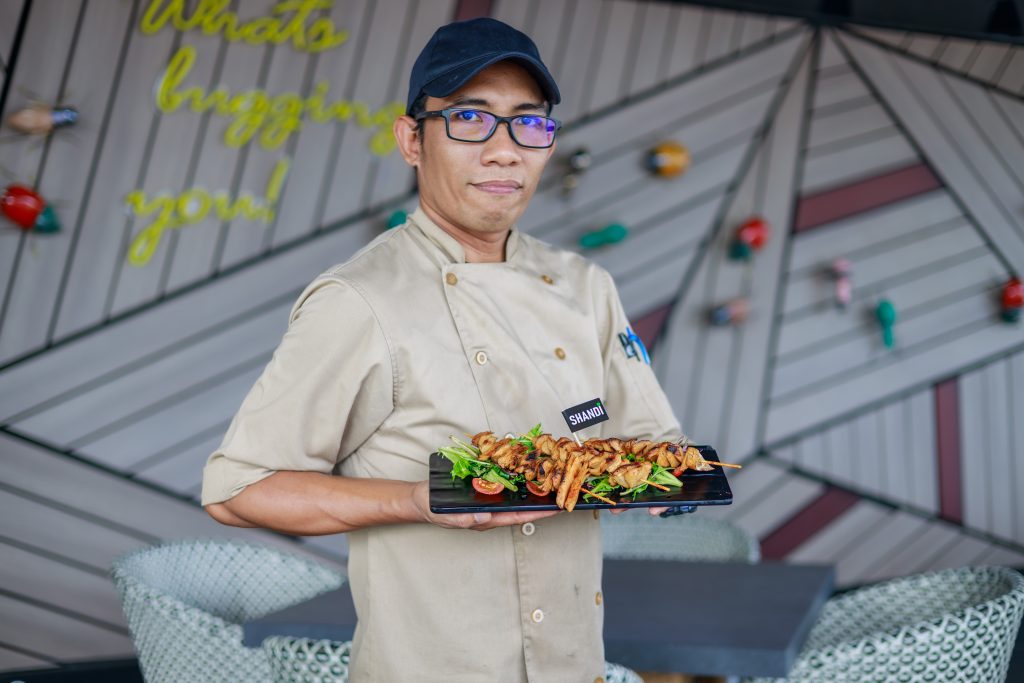Plant-based meat options is not a new concept. Food scientists from as early as the 19th century have been trying to use different protein rich vegan ingredients like soy, peanuts, and wheat into items like burgers to satisfy vegans. Today’s vegan menus have a higher goal though, they have to please the vegan community and come out as a viable contender to real meat for the realest of meat lovers too.
Converting die hard meat lovers can seem like a far-fetched idea. However, it is the need of the hour as the popularity of plant-based meat isn’t about preference. It is about saving the planet too. According to research done by Blackbox Singapore, the traditional livestock system contributes to 14.5% of the Earth’s greenhouse emissions and takes up 45% of the planet’s land surface. This need for traditional meat sources is costing us our biospheres and damaging our environment beyond repair as we speak.

Singapore’s Quick and Growing Adoption Of Alternative Meats
Plant-based meat options is not a new concept. Food scientists from as early as the 19th century have been trying to use different protein rich vegan ingredients like soy, peanuts, and wheat into items like burgers to satisfy vegans. Today’s vegan menus have a higher goal though, they have to please the vegan community and come out as a viable contender to real meat for the realest of meat lovers too.
Converting die hard meat lovers can seem like a far-fetched idea. However, it is the need of the hour as the popularity of plant-based meat isn’t about the preference. It is about saving the planet too. According to research done by Blackbox Singapore, the traditional livestock system contributes to 14.5% of the Earth’s greenhouse emissions and takes up 45% of the planet’s land surface. This need for traditional meat sources is costing us our biospheres and damaging our environment beyond repair as we speak.
Singapore’s Quick and Growing Adoption Of Alternative Meats
In addition to the above reasons, the COVID-19 pandemic has given a huge wakeup call to countries like Singapore that rely on other nations for 90% of their food needs. The Singaporean government has an uphill battle as they try to meet their goal of achieving 30% food sustainability by the year 2030.
This initiative has led Singapore to be quick about approving and supporting alternative meat based startups and the small island is all set to become a giant in the AgriFood Tech sector in Asia. According to research by Technavio – the estimated market value of food tech businesses in Asia is projected to reach US$12.75 billion by 2030 and Singapore will have a lot to contribute to this number.
It is pretty apparent that the pandemic acted as a catalyst that thrusted people towards being health conscious and being conscious about their environment. In the past few years, a number of shops and eateries have popped up across Singapore offering plant-based meat options.
The island now has a lot of options for plant-based meat products and menu items at restaurants and these diners and customers don’t just go ahead and get just any plant based meat products, no. They demand products that are similar in taste and texture to real chicken and red meat.
Shandi Global and plant-based meat
One startup, Shandi Global is making a growing impact in this market as the only alternative meat supplier in the world with a 5 patented food technology that uses Non-GMO and all-natural ingredients such as chickpea protein, brown rice, quinoa, flax seeds, and coconut oil to develop their plant-based chicken meat products.
These products include patties, shreds, drumsticks, and pieces that can be used for restaurants and also by individual customers.
Shandi has just secured their second round of seed funding and has opened up the largest manufacturing facility for plant-based chicken meat in Singapore. Shandi’s meat has 30% of the protein content of real chicken with cooking properties that are strikingly similar to real chicken.
Shandi is just a leading example in this space. There are other start-ups in this space that are heavily investing in developing alternative meat options that taste and feel like real meat. Alternative meat options are a viable solution in reducing world hunger and the ecological impact of traditional livestock farming.

Read More News:

